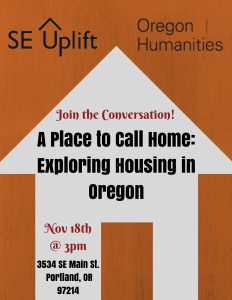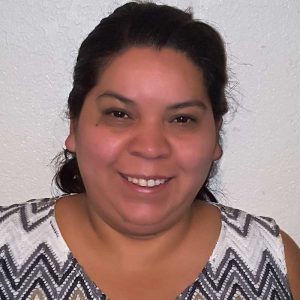INTERFAITH ALLIANCE BACKS BALLOT MEASURE 101-JANUARY 23 By Tom Hering, Advocacy Action Team Co-Chair
Passage of Ballot Measure 101 will protect healthcare coverage for one in four Oregonians including 400,000 kids according to supporters of the measure. Measure 101 creates a fee on insurance companies, hospitals and managed care organizations to make basic healthcare affordable and accessible to every Oregonian. Close to 200 organizations support the measure including major healthcare systems such as Kaiser Permanente, Legacy Health, Providence Health Systems and CareOregon. "Oregonians vote in January and we want to get the word out as soon as possible, If this measure fails, funding for Medicaid is predicted to be cut between $210 and $320 million dollars.
Vulnerable Oregonians including children, seniors and people with disabilities face losing healthcare benefits or coverage altogether."For more information on Measure 101, go to http://yesforhealthcare.org/supporters.
MESSAGE FROM MAYOR TED WHEELER “The end of the year is a time to reflect upon where we’ve been, the challenges we’ve faced, what we have accomplished, and where we resolve to go to in the year ahead.
“My administration did not plan to spend our first months governing from one crisis to the next, but we took on each crisis as it came. Portlanders care about most: housing, homelessness, safety, economic growth, environmental problems, equity, and government transparency and accountability. As we look forward to 2018 we must acknowledge that tremendous challenges lie ahead Solving them will not be easy. But we are a can-do city and mine is a can-do administration. Working together we can continue the progress we began this year.”
2017 blew in on freezing winds causing heavy snows to pile up on the streets of Portland and bringing death to the homeless who lived there. Their bodies were found curled up in bus stops, doorways, parking garages, nestled by dumpsters, and lying on sidewalks.
As the year closed, Multnomah County shelters were again packed, leaving homeless families out in the cold with no place to sleep but the streets of Portland. When the City and County asked Portland Homeless Family Solutions for assistance, they reached out to their long-time partner, who is also the newest member of the Interfaith Alliance, CONGREGATION BETH ISRAEL in Northwest Portland for help. They didn’t hesitate, but immediately opened their doors to provide "an emergency winter family shelter" from December 11, 2017 through April 30, 2018 to accommodate 75 moms, dads, and kids.
Alix Prior is the new Family Winter Shelter Volunteer Coordinator. She will be in the shelter a few evenings a week and will be available for questions, concerns, and support. Please contact Alix for anything volunteer related for this particular location. Alix will be hosting orientations, working with new volunteers, will be sending out on-call emails, and will be refining our systems and volunteer roles as we become more settled at the Family Winter Shelter. You can reach Alix at: alix@pdxhfs.org and 971-865-1351
One year ago in January, speaking at Mayor Wheeler’s swearing in, Interfaith Alliance Co-Chair Carol Turner, said: “We know there is nothing more complex than the poverty that is visible in our city and the poverty which is invisible, with too many people living in the shadows, always anxious about the next paycheck and always on the edge.” She indicated that “the current focus of the Interfaith Alliance is to help vulnerable families gain stability through access to homes that are affordable over time.”
Looking back over 2017, the Interfaith Alliance has worked in several areas to achieve its mission of alleviating poverty in Portland. Striving to make ourselves better informed, we reached out to organizations serving on the front lines of poverty in Portland. We also learned first-hand from those experiencing homelessness or the affects of poverty themselves. Through our members, monthly meetings, newsletter, and website, we have shared what we learned with our congregations and community. We are also becoming more involved. When officials from various organizations speak at Interfaith Alliance meetings, that is often the first step into a long-time collaboration, which is built step-by-step learning together how we can partner to find solutions and effect change.
The Interfaith Alliance has been active advocating for legislative and community efforts to support affordable housing and renters’ rights, protect children, support healthcare, encourage racial equality, promote economic security, and call for education. Learning what is going on both at the Capitol and City Hall, is important. Getting acquainted with our State Legislators as well as our City Council Commissioners can make a difference when we are trying to obtain their support.
The Interfaith Alliance is also working to assist families out of homelessness into stable, productive lives.
In January, the Interfaith Alliance joined with the Multnomah County Library “Everybody Reads” program encouraging the reading of the book “Evicted” by Harvard Associate Professor of Social Justice, Matthew Desmond. Desmond has stated that ”Losing your home,and possessions and often your job, being stamped with an eviction record, and denied government housing assistance, relocating to degrading housing in poor and dangerous neighborhoods, and suffering from increased material hardship, this is the fallout from homelessness.”
Rae Richen, Rose City Presbyterian, worked to obtain the $1,500 Katherine Bisbee Mission Grant. $500 was used to supply Interfaith Alliance congregations with copies of the “Evicted” book so that they hold reading groups. $1,000,was reserved for bus rental to help our homeless and at risk of being homeless neighbors and their supporters go to city hall, state capitol, county meetings, etc. enabling them to have a voice at the table when decisions are being made about access to housing.
Holly Schmidt, Westminster Presbyterian, and Claudia Roberts, Fremont United Methodist organized events to promote the “Everybody Reads Program.”
In February, the Interfaith Alliance joined the PORTLAND TENANTS RALLY - supporting an amendment sponsored by Commissioner, Chloe Eudaly requiring landlords to issue a 90 day notice for a “no cause” eviction and to pay for moving costs. The City Council voted unanimously to support emergency ordinance.
Members of the Interfaith Alliance headed to Salem to participate in the INTERFAITH ADVOCACY DAY IN SALEM to advocate with legislators for legislation regarding housing, hunger, health care, safety and climate justice.
Rev. Connie Yost, First Unitarian offered a four-week course, “ESCALATING INEQUALITY AND POVERTY,” exploring inequality and poverty in the United States and specifically In Portland. The congregations of First Unitarian and Westminster Presbyterian took advantage of Rev. Connie’s classes during 2017. LOVE, INC. provided a poverty curriculum program to members of Fremont United Methodist Church.
In March, the Interfaith Alliance invited Rob Justus to attend their monthly meeting to explain his efforts to assist the homeless into stable housing. The founder of JOIN, Justus has now turned his attention to construction of affordable housing. He advised that his company, “Home First Development” is driven by the belief that decent affordable housing is fundamental to the health and wellbeing of a community, Justus’s goal is to provide quality units that rent for $600/month which are at the same time reasonable for owners to operate and maintain. He has used no public money. Working with non-profit and private donors, he has built 257 units and has other projects underway.
Advocacy members attended “STABLE HOMES FOR OREGON FAMILIES DAY on March 2 Focus was on tenant protections and supporting HB 2004. That was followed on March 22, with their participation in the HOUSING ALLIANCE’S ADVOCACY DAY.
Also in March 2017, the Interfaith Alliance took measures to improve its communications.
The Allianceonpoverty.org website was launched.. From the beginning , a website had been seen as necessary to the effective communication of the organization, but until May 2016, no one had come forward with the skills to perform the task. When professional web designer, Greg Maffei, volunteered his services “free of charge”, it seemed a miracle. With the assistance from his wife, Donna Prosser, and help from Rich Hammons, Madeleine Director of Communications, and Bonnie Gregg, IAOP Poverty Awareness Communication Action Team , the work was completed in March 2017..
At the same time, it was decided an Interfaith Alliance LOGOS was needed for newsletter, website, brochures, stationery, cards, etc.. Many ideas were considered, then Dave Albertine of the Madeleine Catholic Parish, decided it was time to call in “an expert.” Dave’s son, Alex, is now a member of the US Embassy in Nairobi, Kenya – on the other side of the planet but fortunately only a SKYPE visit away. Together Dave and Alex came up with what they thought might be just the right idea. The Interfaith Alliance members liked it, too!
Now that we had a brand new LOGOS, an INTERFAITH ALLIANCE BANNER seemed important for when members attend rallies, march in parades, hold gatherings, etc. Rich Hammons, Madeleine Parish, did the graphics, while, Jeff Behnke, Central Lutheran Church performed the printing of the banner.
The Interfaith Alliance on Poverty gained a lot more visibility in March.
In April, the Interfaith Alliance asked Marc Jolin, Head of the Multnomah County Joint Office of Homeless Services, to tell them about the “Home for Everyone” Program. Jolin revealed that it is a community-wide plan organized in response to Portland’s crisis in housing, During 2015-2016 they served over 25,00 people with housing and support services. Marc indicated everyone’s help is needed. To find out more visit www.ahomeforeveryone.net or ahfe@multco.us, or call 503-988-2543.
May was a busy month. On May 18, the legislature sponsored HOUSING OPPORTUNITY DAY. Tom Hering, member of Rose City Park Presbyterian and Co-chair of the Advocacy Action Team, and John Elizalde, First Unitarian, along with others from the Advocacy Action Team attended.
John Elizalde, First Unitarian, and Co-Chair of the Poverty Awareness Communication Action Team had primary responsibility for organizing the May IAOP Seminar. -- Dr. Mandy Davis, spoke on BREAKING THE CHAIN OF INTER-GENERATIONAL POVERTY, STARTING WITH THE CHILDREN”, before a gathering of Interfaith Alliance members and friends, held on May 7th at The Madeleine Catholic Parish.
Dr. Davis explained that if we hope to help the children caught in generational poverty we need to understand how trauma sets the stage for this generational inheritance. Science teaches that trauma (toxic stress and adversity) impacts the way our brain develops and functions. Adversity in childhood leads to challenges in emotional stability, educational achievement, good health, positive relationships, and job success.
Dr. Davis urged those seeking to help children living in poverty to look for ways to create safe, stable and nurturing relationships so that the children can learn skills to reach their full potential. Physical and emotionally safe places are necessary for children suffering the trauma of generational poverty.
IAOP MEMBER, AUGUSTANA LUTHERAN CHURCH RESPONDED TO HATE CRIME IN PORTLAND
When two Muslims were attacked and killed at a MAX transit station, Mark Knutson, pastor of Augustana Lutheran Church, called the community together. Guest speaker was nationally prominent civil rights activist, Jesse Jackson. “POVERTY IS AN ANNHILIATION” Jesse proclaimed. He observed that “We must leave the racial battlefield to seek the economic common ground that will enable us to achieve the moral high ground where all men are treated equally in a global community. We must pull down the walls of ignorance to build bridges of understanding. We must remember that regardless of our color or religion, we live in one big tent.”
On June 29, members and friends of the Interfaith Alliance gathered to enjoy a potluck and review accomplishments of the 2016-2017.
Tom Hering, Rose City Presbyterian, and Sally Fraser, Grace Memorial Episcopal, Co-Chairs of the Advocacy Action Team, described actions taken to support tenants’ rights, protest no-cause evictions, promote affordable housing and recommend legislation.
Working with groups within the community including Living Cully and St. Charles Catholic Church, the advocacy team has participated in efforts to produce positive change, joining rallies at the City Hall and State Capitol, as well as supporting renters throughout Portland.
Rae Richen Rose City Presbyterian and Dave Albertine, the Madeleine Catholic Parish, Co-Chairs of the Transition to Stability Action Team reported that working with the Village Support Network, a number of Alliance congregations were successful in assisting homeless families into stable housing. Since the close of the Village Support Network on May 1, 2017, other options are now being explored to provide this service.
John Elizade, First Unitarian, and Bonnie Gregg, Madeleine Catholic Parish, Co-Chairs of the Poverty Awareness Communication Action Team, reported on activities held this year.
Poverty Curriculum seminars were conducted at Fremont Methodist, Westminster Presbyterian, and First Unitarian by Love, Inc. and the Reverend Connie Yost.
In cooperation with the Multnomah County Library, the Alliance promoted reading Matthew Desmond’s book “Evicted” through the “Everybody Reading Reads” program. Holly Schmidt, Westminster Presbyterian, and Claudia Roberts, Fremont Methodist were responsible for spearheading the program’s success.
A four-hour seminar conducted by Dr. Mandy Davis, was conducted at the Madeleine Catholic Parish explaining “Trauma Informed Care.”
The Interfaith Alliance continued publication of a monthly Newsletter, edited by Bonnie Gregg of the Madeleine Parish.
The Interfaith Alliance on Poverty Website was launched in March 2017, through the efforts of Greg Maffei and his wife Donna Prosser with help from Rich Hammons, Director of Communication, and Bonnie Gregg, website assistant, all from Madeleine Catholic Parish.
Speaking at the meeting was Jessica Rojas, NE Coalition of Neighbors Program Manager. She shared personal story and perspectives on poverty.
Born into a poor family, Jessica advised that she learned that “real wealth” is found not in the accumulation of possessions, but in the relationships we forge within our families and communities.
Although we tend to think of poverty as lack of money, Jessica directed our attention to other resources of great value. When the land, rivers, oceans and air become polluted, other kinds of poverty result. No longer is there clean water to drink, fresh air to breathe, bees to pollinate our plants, soil to produce healthy crops, seas abundant with life, or forests to cleanse the atmosphere. Jessica commented that “If we do not address threats to our environment, one day we may see the number of “climate refugees” rival those fleeing war zones”. Other types of poverty include “poverty of homeland” suffered by immigrants, “poverty of discrimination” suffered by people of color, and “poverty of loneliness” suffered by the elderly, mentally ill addicted, and the homeless.
In July, the “BETTER OREGON COALITION” gathered at Salem. Members of the Interfaith Alliance representing Westminster Presbyterian, Augustana Lutheran, Madeleine Catholic, Fremont United Methodist ,First Unitarian and Central Lutheran together with the NE Coalition of Neighbors, parents, student workers, business owners, unions and social workers from all over Oregon as well as the Ecumenical Ministries of Oregon joined together at the State Capitol to inform the legislature that our “state is in crisis” and “to invest in people, not corporations!”
Rev. Mark Knutson of Augustana Lutheran Church gave a “barn burner” speech on the steps of the Capitol in which he quoted from Dr. Martin Luther King, saying ”I have the audacity to believe that peoples everywhere can have three meals a day for their bodies, education and culture for their minds, and dignity, equality, and freedom for their spirits.” Despite the efforts of the Better Oregon Coalition, recommended measures were not taken.
In August, INTERFAITH ALLIANCE MEMBERS JOINED CULLY NEIGHBORS
Cameron Herrington, Coordinator of Living Cully, advised that Cully is “the most diverse community in the state”, with 50% people of color, immigrants, and refugees. The Interfaith Alliance is working with Living Cully to prevent displacement and assist low income residents in their fight against rising rents.
When repairs were needed at Cedar Shade and Arbor Mobile Home Parks, Interfaith Alliance members rolled up their sleeves to join residents and others volunteering to do the work. David Groff, Westminster Presbyterian, helped build a stairway at Cedar Shade while Les Wardenaar, Fremont Methodist, helped with window caulking at Arbor Mobile. Marilyn Mauch Fremont Methodist, and Sarah Carolus, Central Lutheran joined those preparing a meal for the workers.
As a member of the Advocacy Action Team, Marilyn Mauch has become actively involved in Cully She attends their meetings, helps as she can, and joins residents on walks around the neighborhood. As founder of the Backpack Lunch Program, Marilyn has experience solving problems. She believes that problems are not solved by outsiders looking in, but by joining those who face the problems every day from within.
CHANGE OF MEETING VENUE
With the support of Pastor Beth Neal, Westminster Presbyterian Church has sponsored the Interfaith Alliance from its beginning in October of 2015. They first put out the call to other congregations to join them in learning more about poverty as presented in a seminar by Donna Beegle. Thereafter, they promoted efforts to join forces in helping improve the lives of the poor in our community. Interfaith Alliance members met at Westminster every month after that until this fall, when Westminster’s parking needed repair. It was decided to find another venue while repairs were made.
In September, the IAOP monthly meeting was held at the Madeleine Parish. Father Mike Biewend, has supported the Interfaith Alliance, since its inception. Whenever the Interfaith Alliance has had a major event to host he has opened Madeleine’s doors and warmly welcomed IAOP members and guests. He has also encouraged his congregation to be generous with their time, talent, and financial support.
Guest speakers were Street Roots Executive Director, Israel Bayer, and Newspaper Vendor, Lori Lematta. Israel said that “investing in affordable housing and homeless services is not only the right thing to do – it is the smart thing to do. When we support and invest in affordable housing, we are not only investing in Oregonians today, we are investing in the generations of tomorrow. Affordable housing – like our roads and parks and schools play a vital role in maintaining a healthy society for generations to come.”
Lori shared her personal story, overcoming emotional trauma, problems of health and addiction and escaping homelessness. She told about life on the streets, constantly having to wait in line, having to be out of shelters by 7:00 AM, having no place to rest in the daytime, how some shelters treat you like children, being bound to the streets, the smell of “death” in the air, never taking a vacation, getting a new outfit. She also shared what Street Roots had meant to her, allowing her to recover independence, income, and respect
Interfaith Alliance members attended and supported the Street Roots Annual Fund Raising Breakfast. Many congregations invited Street Roots Newspaper Vendors to sell their papers after services.
Interfaith Alliance members participated in the MLK MARCH FOR JUSTICE, commemorating Dr. King’s march 54 years ago, supporting voting rights, healthcare, criminal justice reform, and economic justice.”
Alliance leader, Tom Hering, Rose City Park Presbyterian, in above photo, observed that
“About 400 (my guesstimate) attended the March this a.m. in downtown Portland. It was powerful to be a part of the MLK march for justice with so many faith communities! “People I recognized from IAOP were Pastor Lynne Smouse Lopez, Ainsworth United Church of Christ, (one of the organizers of the March), Erik and Diane Anderson, Ainsworth United Church of Christ; Marie Langenes, St.Andrews Catholic Church; Beth Neal, Pastor Westminster Presbyterian; Jim Moiso, Rose City Park Presbyterian, Katie Larsell, Executive Director Unitarian Voices for Justice; David Dornack, Pastor Rose City Presbyterian; and few of the young ministers from Portsmouth Union and Salt and Light Lutheran Church, with whom Marilyn Mauch and I have been working in regard to affordable housing advocacy housing.”
In October Augustana Lutheran Church hosted the monthly meeting. of the Interfaith Alliance. Rev. Mark Knutson reflected on “Poverty in Portland”, as he has experienced it through his 22 years of ministry at Augustana.. He stated that “the biggest challenge of our day is discerning what the cutting edge issues of justice, peace, diversity, equity, reconciliation and inclusion will be, and helping position the church to be ready, as a voice of conscience, to be proactive with others, in doing what is right.”
In November -- Les Wardenaar, member of
Fremont United Methodist and the Interfaith Alliance Advocacy Action Team wrote an editorial in support of the PORTLAND COMMUNITY COLLEGE BOND MEASURE.
He stated, “Experts agree that EDUCATION is the most effective way to lift people up and out of generational poverty. This is why our Portland Community College system is such a critical resource in the fight against poverty in our Metropolitan area. It provides accessible, affordable and confidence-building education and training to a population that needs it most. And this is why--even if you are suffering from "voter fatigue" or think that single issue election doesn't matter--you need to cast your ballot.
Pastor Donald Frazier hosted the November meeting of the Interfaith Alliance at Genesis Community Fellowship. In addition to being ordained as a pastor, Pastor Frazier also worked as manager at the State of Oregon Children Services Division for 12 years. He said that his “twelve years with CSD deeply burdened his heart for ministry to young people, families, and racial reconciliation. He has also been a leader with Promise Keepers while pastoring at Mt. Sinai and began the Bridge Ministries program, designed as an outreach program aimed at reaching gang affected you and their families.
Attending the meeting was Dr. T. Allen Bethel, Senior Pastor at Marantha Church and also President of the Albina Ministerial Alliance. He shared his perspectives as a pastor and civil rights activist over the past 60 years. He indicated his goal has been to bring people together to promote education, health, housing community, and justice.
Featured speaker was Felicia Tripp, Deputy Director of the Portland Housing Center who stressed that “home ownership is the key out of generational poverty”. She explained that once you own your own home, no longer are you at the mercy of landlords, who can raise your rents. You are able to establish credit, build equity, stabilize your life and that of your children”. The Portland Housing offers educational opportunities teaching how to negotiate the real estate market, geared to the cultural needs of the applicants. PHS has assisted more than7,000 families in becoming successful home owners. Jackie Butts, Home Ownership Program Manager explained that PHS assists home buyers with both down payments and financing.
Other speakers representing the URBAN LEAGUE OF PORTLAND included Danetta Monk, Housing Program Manager, Ruthie Carver, Community Health Worker and Cayalaya Sand, Housing Specialist. They discussed how the Urban League provides a wide-range of home ownership services including counseling and financial education.
In December, the Interfaith Alliance stepped up to protect residents of 62 Portland mobile home parks, by launching a postcard campaign to support a zoning initiative sponsored by Commissioner Chloe Eudaly to make it more difficult for landlords to close down a park . Members of nine Interfaith Alliance congregation signed several hundred cards which were hand delivered to Mayor Ted Wheeler’s office urging his support for the measure.
Mary Li , Director of the Multnomah County Idea Lab was guest speaker at the December 7, 2017 Interfaith Alliance Meeting held at Westminster Presbyterian Church . The Multnomah Idea Lab (MIL), housed within the Multnomah County Department of County Human Services (DCHS), tests new policies and innovations that help people and communities thrive. Partnering with the national Family Independence Initiative (FII) and the Department of Human Services (DHS), MIL works to establish peer groups for families who have recently left the Temporary Assistance to Needy Families (TANF) program. The FII model engages families to share resources, provide support to one another, act as role models, and set their own goals.
Mary indicated that the MIL designs practices to solve problems, using critical thinking, and applied research to affect structural change in racial justice and generational poverty. “Be the change you seek” is their motto. Instead of relying on organizations to provide resources, Mary stated that families/individuals need to build their own wealth by setting goals and joining “circles of support” to achieve them.
SO WHAT’S NEXT FOR THE IAOP? Key strategies for 2018 include:
- Advocate with local governments and other entities to increase the amount and availability of safe, stable low income housing.
- Explore and practice ways to have more direct connection with families who are experiencing generational poverty and support their transition to stability
- Increase our involvement with neighborhood initiatives to reduce poverty and continue work with Living Cully/Cully neighborhood and look for other opportunities.
- Continue to become more poverty informed.
CHANGE OF WEBSITE MANAGEMENT
Effective, January 1, 2018, Tom Hering, Rose City Presbyterian Church, and Co-Chair of the Advocacy Action Team will assume responsibility for the development of a new IAOP website platform to replace current model.
.
2018 IAOP BUDGET APPROVED
Interfaith Alliance Treasurer, Les Wardenaar presented Projected 2018 Interfaith Alliance Budget for membership review. Budget was approved as recommended.
Anticipated expenses will include
Communication
Website: $2500 Website expenses covering initial start-up and annual hosting fees, maintenance costs, and payment for prior development
Speakers: $500 ($50 Gift Cards for personal stories)
Curriculum: $850 – Purchase of program materials to support trainings at individual congregations or groups
Printing: $200 – Printing & Photocopying (sign-in sheets, handouts,)
Transition to
Stability: $500 (anticipated costs associated with guiding individual family units, including possible training fees for support teams, incidental/miscellaneous expenses, and small direct support items such as temporary help with family deposits or expenses.)
Advocacy Team: $700 –including $400 for Scholarships for Conferences (average $50 per participant, 2 per quarter) and $300 for advocacy activities)
January 4, 2018 – IAOP Meeting
First monthly meeting of the Interfaith Alliance will be held at Grace Memorial Episcopal Church, 1535 NE 17th, from 12:00-2:00 PM.
Featured speaker will be Joy Alise Davis, M.A., Executive Director | Portland African American Leadership Forum (PAALF)
Joy agreed to speak in response to the following letter from John Elizalde, First Unitarian and Co-Chair of Poverty Awareness Communication Action Team. John’s letter also describes the Interfaith Alliance and provides insight into its goals.
John began his letter, “I am part of the Interfaith Alliance on Poverty, a sort of new group of congregations working to address the systems in our society that perpetuate poverty in our community. https://allianceonpoverty.org
“We’ve been around for a few years and have worked to involve our members in advocacy, education and helping people transition to stability. Essentially this group of congregations realized that we were all deeply involved in direct service (and still are). However, we wanted to make a difference, a longer lasting difference in the lives of our neighbors in need. We are on a quest to find ways to make that difference. We don’t bring answers; rather we bring a desire to help, to support and to advocate for organizations on the front line of these changes.
“In early October Felicia and Jackie, from the Portland Housing Center, told our monthly meeting about their organization, its work and (most importantly) the people they serve. We also heard from the housing team at the Urban League and learned about their housing services. Dr T Allen Bethel suggested that we reach out to groups working in the N/NE area, specifically groups focused on the African American community, if we wanted to explore ways to be of support for that community. We have an ongoing and developing relationship with Living Cully and appreciate their willingness to have us follow their lead and support their work; we seek such a relationship in the N/NE area.
“It seems to us that we, the Interfaith Alliance, would be served well to learn about the Portland African American Leadership Forum. Many of the congregations in our alliance are located in NE Portland. All of us know the ’10,000 foot version’ of the Emanuel Hospital/North/NE episodes from the middle of the last century. We know that PAALF is involved deeply in the efforts to address the consequences of that era. We are quite sure there is work we’d like to help with”
PRAYER FOR THE NEW YEAR…..
“May God bless us with discomfort at easy answers, half-truths, and superficial relationships, so that we will live deep in our hearts.
“May God bless us with anger at injustice, oppression, and exploitation of people and earth, so that we will work for justice, equity, and peace.
“May God bless us with tears to shed for those who suffer, so we will reach out our hands to comfort them and change their pain to joy.
“And May God bless us with the foolishness to think that we can make a difference in the world, so we will do the things that others say cannot be done.“
Franciscan Benediction


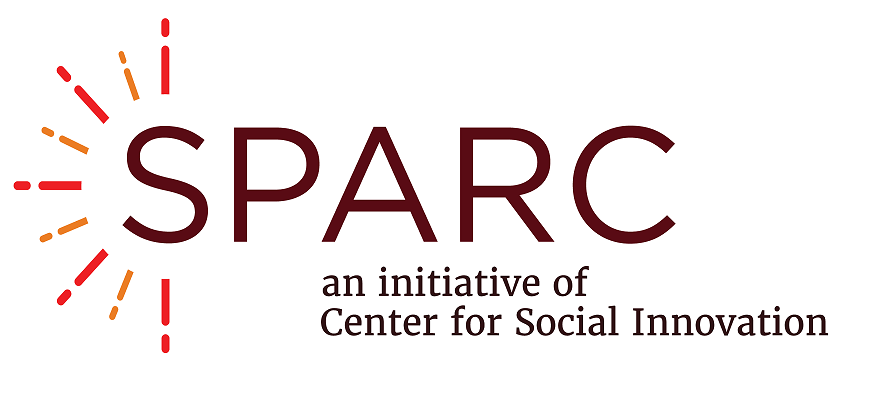
 “There were several hundred housing advocates gathered in Salem to learn about key legislative measures, how to talk with representatives and visit the representatives and ask for their ‘yea’ votes on these measures. Each attendee was matched with appointments to visit both their representative and senator.We were asked to stress one bill during our visits.
HB 4007, Document Recording Fee: What the Oregon Housing Alliance has to say about this bill:
“There were several hundred housing advocates gathered in Salem to learn about key legislative measures, how to talk with representatives and visit the representatives and ask for their ‘yea’ votes on these measures. Each attendee was matched with appointments to visit both their representative and senator.We were asked to stress one bill during our visits.
HB 4007, Document Recording Fee: What the Oregon Housing Alliance has to say about this bill: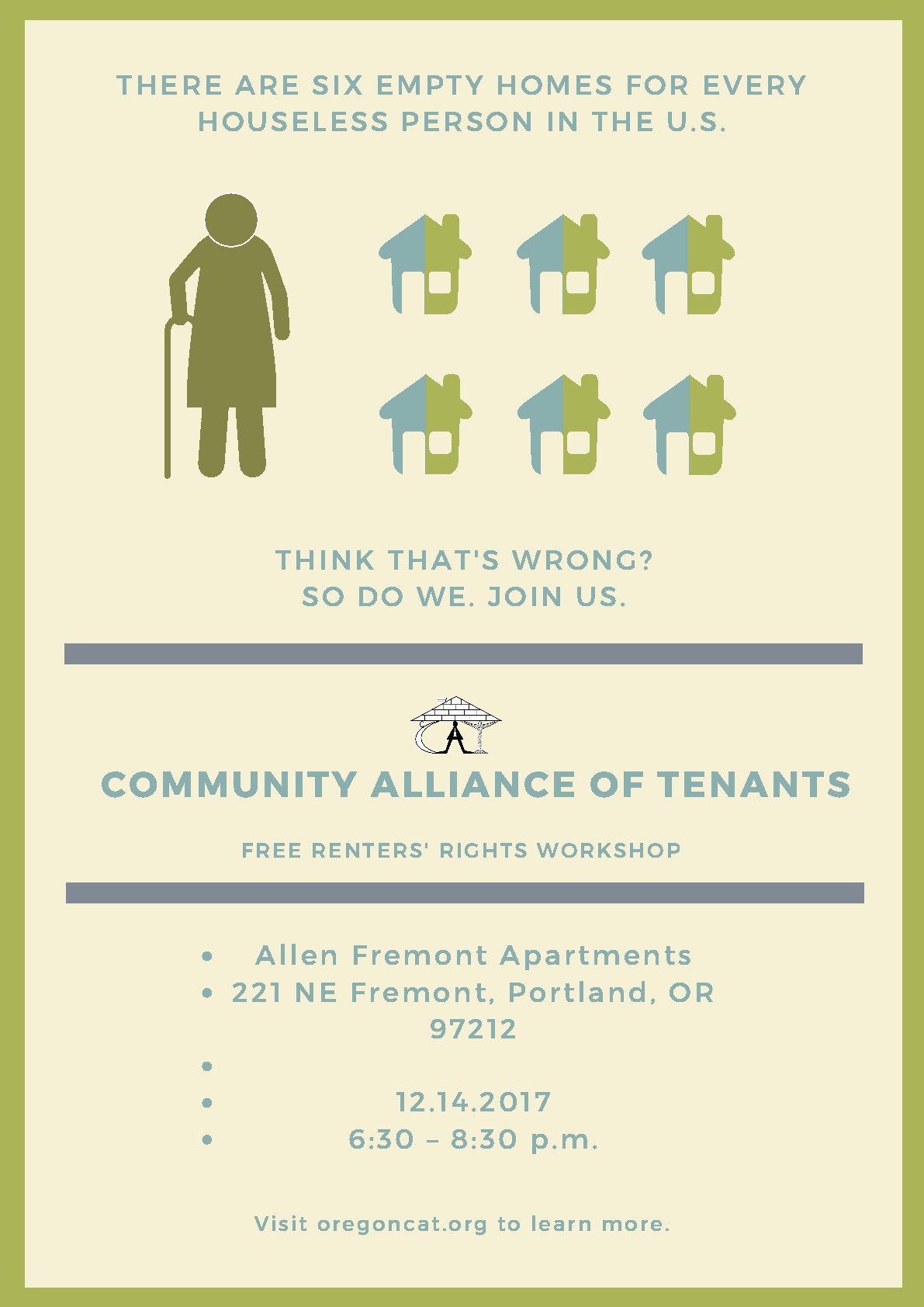
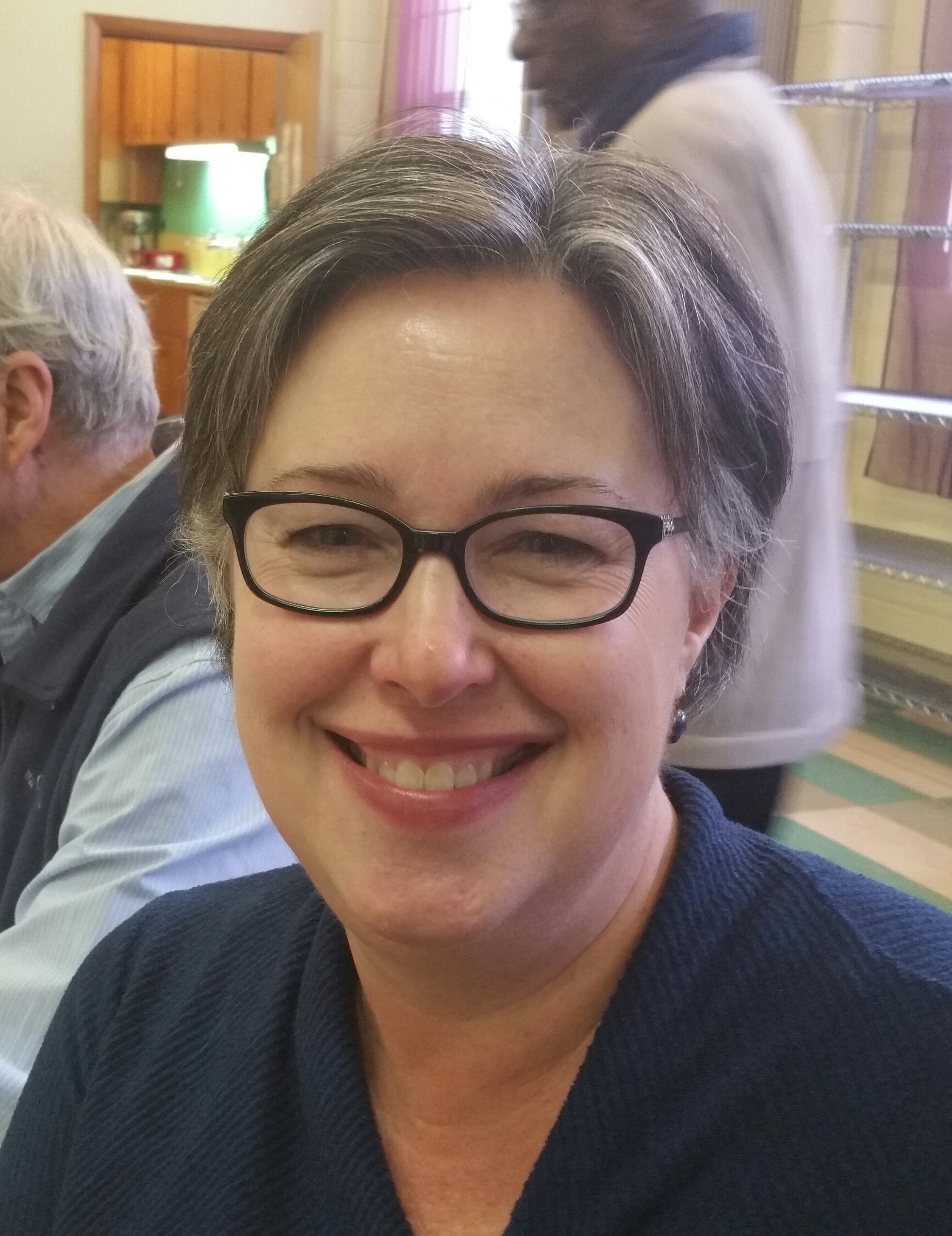 Beth Neel, Pastor at Westminster Presbyterian Church will host the December Interfaith Alliance Meeting, to be held at Westminster Presbyterian Church, 1624 NE Hancock, on Thursday, December 7, at 12:00 PM.
Beth Neel, Pastor at Westminster Presbyterian Church will host the December Interfaith Alliance Meeting, to be held at Westminster Presbyterian Church, 1624 NE Hancock, on Thursday, December 7, at 12:00 PM.